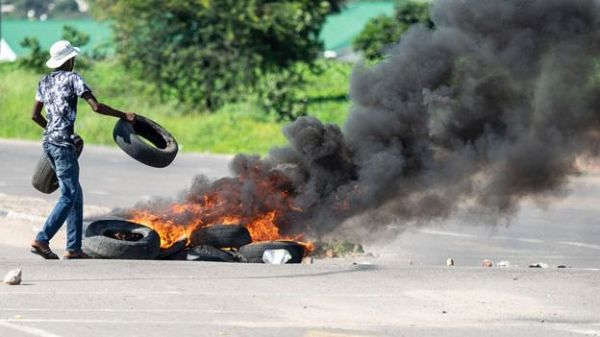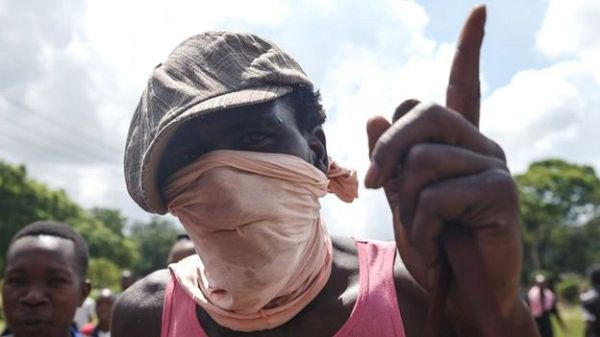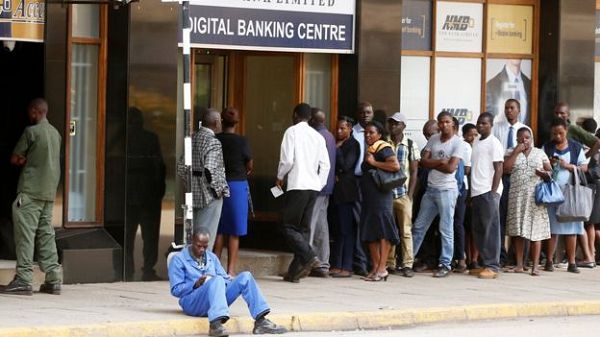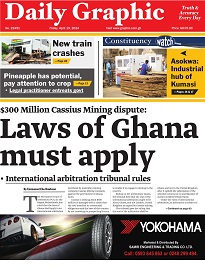Today's World News - From Africa, Asia, U.S, Europe and Middle East

Letter from Africa: Despair, anger and anxiety in Zimbabwe's fuel queues
In our series of letters from African writers the journalist and lawyer Brian Hungwe reflects on the impact of inflation on the lives of Zimbabweans, where the price of fuel has more than doubled in an effort to deal with a shortage.
I joined a queue for petrol at around 16:00 on Saturday afternoon.
Advertisement
Dozens of cars made an orderly line stretching about 500m.
The pace of the service was so excruciatingly slow that most of us made friends in an effort to keep boredom at bay.
Anger over price rise
By the time I got to within 100m to the petrol pump - about five cars ahead of me - it was an hour before midnight, but the fuel attendants suddenly shut the pumps, packed up their bags and left.
You can imagine the murmurs of despair, anger, and anxiety.
News had filtered in that President Emmerson Mnangagwa had put up the price of fuel by more than 100% to take effect at midnight.
Those lucky enough to have bought their fuel before us could only thank the heavens.
The reason for the hike, the government said, was to avert fuel shortages that have created national angst.
The hike means petrol prices rose from $1.24 (£0.97) a litre to $3.31 , with diesel up from $1.36 a litre to $3.11.
Zimbabweans were not pleased by these changes, hundreds of them went to the streets of the capital, Harare and the southern city of Bulawayo, to protest against the new prices.
The sudden increase is symptomatic of price distortions Zimbabweans have to deal with on a daily basis.
The price of fuel is fixed by the authorities. Unlike other businesses, fuel stations have to sell petrol at the same price in US dollars and the surrogate currency - bond notes - introduced more than two years ago to address a cash crisis.

Thriving black market
The government maintains that bond notes, which is only traded in Zimbabwe, is pegged to the US dollar.
But the reality of the ground is different.
There is a thriving black market where three bond notes fetch one US dollar.
The current situation reminds everyone of the pre-2009 era when inflation went into the stratosphere - reaching 231m% in six months before the Zimbabwe dollar was abandoned for international currencies like the US dollar and the South African rand.
You have to walk into a supermarket to see the price distortions at work.
If I pick groceries worth $20 I will be given a choice of how to pay for the items. I could opt to use bond notes, but the bill will be 60 bond notes.
Or I could pay electronically with my card - and 70 bond notes would be deducted from my account as each electronic transaction is now subject to tax.
Doctors and other civil servants, whose salaries are paid in bond notes, are angry - and some even went on strike to demand that they get paid in dollars as their salaries cannot keep up with the inflation.
There are many businesses which are only accepting payment in US dollars - including private schools.
If doctors were to get their wish they would have to open up a separate foreign exchange account.
This is because ordinary bank accounts no longer handle US dollars.
Three years back, one could withdraw as much as $2,500 from a cash machine. Now they only supply bond notes - and each account holder can only withdraw 20 bond notes a day.
Queues outside banks are therefore a common sight as Zimbabweans use other ingenious ways to get access to their money.
The government also tries as much as it can to get its hand on foreign currency, expatriates and tourists for example are required to pay for goods and services using US dollars.
Other lucky Zimbabweans get money sent by relatives overseas to help them navigate the economic challenges.

Consequently, Zimbabweans have not taken to the bond notes.
The currency is being blamed for the inflation crisis and the price distortions that have become a headache for consumers and industry alike.
But these distortions were predictable.
If you talk to economists, they will tell you something about Gresham's law, which occurs when two different currencies are given the same value.
Cash under the mattress
The principal is "bad money drives out good", in other words, one currency will become more desired than the other.
In the case of Zimbabwe and the US dollar, the desired currency disappeared as many withdrew their US dollar cash from the bank, and kept the notes under their mattresses. Most banks ran out of it, worsening a biting cash crisis.
Just after the military intervention that ousted President Robert Mugabe in November 2017 Zimbabweans were obsessed by debates around economic reforms.
Suddenly everyone became an economist.
But the investment has not come flooding in as was expected. Investors may still be spooked by the nature of the military's hand in the government.
The euphoria that ushered in President Emmerson Mnangagwa, or ED - as he is affectionately known - has ebbed and he is now walking a tightrope.
Finance Minister Mthuli Ncube says he wants to reintroduce the Zimbabwean dollar by the end of this year.

Experts say this would allow the central bank to control inflation more effectively and it will be good for the economy.
"The current dollarised scenario where we are having to import foreign currency for local use is unsustainable as current foreign exchange generation is not enough to meet the country's import demands," economic analyst Persistence Gwanyanya told the state-run Herald newspaper.
But frustration is growing daily, with many Zimbabweans fed up that the post-Robert Mugabe era is not living up to the high expectations.




